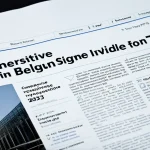Understanding the London Mortgage Landscape
The London mortgage market is both intricate and dynamic, shaped by various factors pertinent to the housing market and property investment. Currently, the housing market in London is experiencing fluctuations, influenced by economic factors and post-pandemic recovery. Investors keen on property investment must stay updated on these trends to make informed decisions.
A notable trend is the increasing mortgage lending for renovated properties. The appeal of updated homes is rising, triggering competitive mortgage offers from lenders eager to cater to this segment. For investors in the London mortgage market, understanding the nuances of these specific financing products is crucial.
This might interest you : Exploring Insurance Premium Variations: Detached vs. Semi-Detached Homes in Cardiff
Comprehending local market dynamics not only aids in recognizing prime investment opportunities but also in negotiating favourable mortgage terms. Those engaging in property investment should scrutinize regional data, factoring in fluctuating property prices and rental yields.
In summary, navigating the London mortgage market requires a robust grasp of current housing market trends and an attentive approach to local conditions. This understanding can significantly enhance investment strategies and outcomes, aligning well with investors’ goals within the property sector.
Topic to read : Smart Financial Tactics to Mitigate High-Risk Property Insurance Expenses in UK Coastal Regions
Eligibility Criteria for Mortgages
Navigating the mortgage eligibility process is critical for potential homeowners. Lenders primarily assess key financial indicators to determine an applicant’s viability. Among these, one’s credit score plays a pivotal role, often influencing available mortgage options and interest rates. A high credit score generally implies a lower risk for lenders, potentially resulting in more favourable mortgage terms.
In addition to credit score, several other eligibility factors come into play. These include income levels, which help lenders gauge an applicant’s repayment capability. A steady employment history further strengthens one’s application, showcasing financial stability. Importantly, potential borrowers should also consider their down payment capacity, as a larger down payment might lower the loan-to-value ratio, enhancing the likelihood of approval.
Prospective homeowners should prepare to undergo a thorough financial assessment. This assessment evaluates overall financial health, ensuring loan agreements are sustainable for both parties. Investing time to improve these criteria can substantially increase approval chances and secure more advantageous mortgage conditions. Prioritising credit health, stable income, and thoughtful savings strategies are crucial steps in meeting the eligibility requirements set by lenders in today’s market. This, in turn, empowers buyers to make informed, impactful decisions.
Types of Mortgages Available for Renovated Properties
Exploring mortgage types for the London market reveals various options well-suited to renovated properties. Selecting the right product is crucial for aligning with investment goals and optimizing financial outcomes.
Standard Residential Mortgages
These loans are common choices for individuals purchasing renovated homes for personal use. They typically offer competitive rates but may require a substantial deposit, emphasising a buyer’s financial stability and repayment capability.
Buy-to-Let Mortgages
For those interested in renting out their renovated properties, buy-to-let mortgages are ideal. This mortgage type acknowledges potential rental income to determine borrowing limits, tailoring terms to the specific risks and rewards associated with property letting. The rates may be higher than residential mortgages due to perceived lender risks.
Renovation Loans
Specialist renovation loans are explicitly crafted for financing upgrades. They cater to buyers wishing to enhance property value pre-sale or post-purchase, accommodating costs that standard mortgages might overlook. Availability is sometimes limited, with higher interest rates reflecting increased risks.
When considering these options, potential buyers should assess interest rates, terms, and conditions to determine the most suitable product. Exploring further into specific offers can provide an enhanced understanding and aid informed decisions.
Financial Implications of Renovated Mortgages
Engaging in property renovation comes with specific financial planning considerations that cannot be overlooked. While renovating a property can significantly increase its market value, it also introduces various renovation costs that must be carefully planned. These costs may include structural changes, interior updates, or essential repairs, which should be integrated into your mortgage’s financial framework to avoid overspending.
Understanding how these renovation costs impact mortgage rates is crucial in making informed and strategic financial decisions. Lenders might factor in the improved value post-renovation when assessing your mortgage terms, possibly resulting in more favourable rates. However, it’s vital to remember that the perceived risk may also influence rates, sometimes leading to higher costs than standard mortgages.
Budgeting is integral to managing the financial implications associated with renovating. Start by obtaining detailed renovation estimates, then incorporate these costs into the broader financial strategy linked to your mortgage. Ensure these estimates accommodate potential unforeseen expenses, thus safeguarding your financial planning. A meticulously crafted budget not only supports comprehensive renovation financing but also ensures the investment remains viable and beneficial in the long term.
Necessary Documentation for Mortgage Application
Embarking on a mortgage application requires meticulous preparation of mortgage documentation. This documentation serves as the backbone of the application process, establishing an applicant’s financial credibility. Thoroughly organizing and accurate submission of required paperwork is crucial.
Essential Documents Required
Lenders typically request a comprehensive set of documents. This includes:
- Proof of Income: Usually in the form of recent payslips and possibly tax returns or self-employment accounts.
- Identification: A valid passport or driver’s license.
- Credit History: A detailed credit report outlining your credit score.
- Bank Statements: Recent statements to verify financial stability and spending habits.
- Employment Verification: A letter from your employer confirming job status and salary.
Tips for Organizing and Submitting Paperwork
To streamline the process, keep your documents up-to-date and readily accessible. Consider creating digital copies for easy submission if required electronically. Double-check for completeness and accuracy to avoid delays in the application process.
Common Mistakes to Avoid
Avoid overlooking any document, failing to update expired IDs, or submitting incomplete applications. These errors can result in lengthy delays or rejections, hindering your path towards securing a mortgage.
Working with Lenders in the London Market
Navigating relationships with lenders in the London mortgage market can significantly impact the success of securing a mortgage. Utilizing a mortgage broker offers advantages, including access to a broader range of mortgage products and potentially more competitive rates. Brokers hold expertise in the local housing market, enabling them to provide tailored advice and efficiently match borrowers with suitable lenders.
Engaging with lenders requires strategic communication to foster an understanding of one’s financial position and investment goals. Being clear and proactive in discussions, while addressing any concerns, helps establish trust and facilitates smoother negotiations. It’s beneficial to ask specific questions regarding terms, rates, and any potential flexibility in the contract.
Negotiation tips are crucial in achieving more favorable terms. Preparation is key; understanding current market trends and having a clear financial plan ready can empower borrowers during negotiations. Highlighting awareness of one’s creditworthiness and ability to repay can positively influence lenders’ perceptions, promoting constructive dialogue.
Forming strong lender relationships and adopting effective strategies not only simplifies securing mortgage agreements but can also optimize financial outcomes, ensuring a property investment aligns with personal and market objectives.
Insights and Tips for Securing a Renovated Mortgage
The nuanced world of renovated mortgages requires strategic planning and a keen understanding of emerging market insights. These strategies not only empower investors to navigate the complexities but also maximise returns.
Understanding the right mortgage tips for renovated properties is paramount. Investors should focus on mortgage products tailored specifically for renovations, ensuring alignment with both financial goals and property values. Being informed about upcoming trends in the London renovation market can unveil lucrative opportunities, often characterised by rising demands for enhanced and energy-efficient homes. For instance, properties with sustainable upgrades or smart home technologies are gaining traction, reflecting larger urban lifestyle shifts.
When aiming to optimise a renovation strategy, consider innovative financing options like renovation loans, which cater to specific improvement costs, offering capital that standard mortgages often overlook. It’s also critical to plan diligently for potential cost overruns and extended timelines.
Prospective buyers should also be aware of preferred locations within London where renovated properties are experiencing increased demand. Remaining informed and adaptable to changing market conditions can position investors advantageously, ensuring they capitalise on London mortgage market dynamics effectively.











